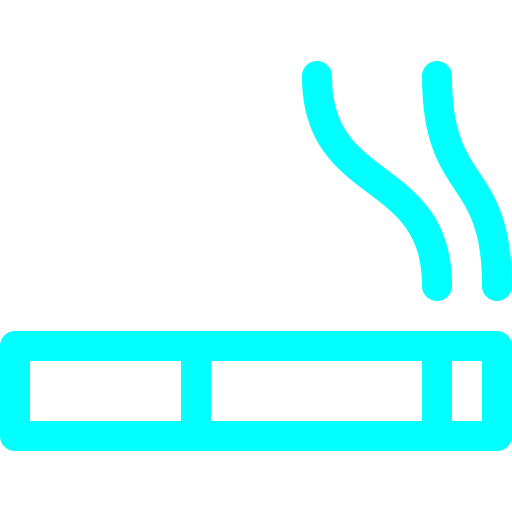Even if you don’t agree with the laws, it is still your responsibility to follow them, so it’s crucial to be aware of the local laws in Vietnam before you travel. (Did you know it’s illegal to be disrespectful to the Vietnamese flag and national anthem? Now you do.)
It’s always important to learn about local rules and regulations when traveling to a new country, but that’s especially true in Vietnam, where a number of laws differ from their United States counterparts. You could face serious consequences for breaking the law here, including imprisonment and the death penalty—even if you’re not a Vietnamese citizen.
Here are some local laws relevant to foreign travelers in Vietnam, as well as what to do if you run into trouble with the authorities.
- Local Laws in Vietnam Travelers Should Know
- Currency
- Passport and Visas
- Customs and Border Patrol
- Photographs and Video Recordings
- Indigenous Sites
- Drinking
- Smoking and Tobacco
- Marijuana
- Drugs
- Driving
- Legal Rights for Women
- LGBTQ+ Safety
- Wildlife and Animals
- Public Displays of Affection
- Dress Code
- What Happens If I Break the Law While Visiting Vietnam?
- Vietnam Extraterritorial Jurisdiction
- Vietnam: Know Before You Go
Local Laws in Vietnam Travelers Should Know
Currency
You’re allowed to bring the following amounts of currency into Vietnam without having to declare it:
- Local currency (Vietnamese dong; VND) up to ₫15,000,000
- Foreign currency up to US$5,000 or equivalent
- Gold up to 300 grams
If you bring more than these amounts, Vietnamese law requires that you declare them to customs officers and fill out a customs declaration form. You can use the online FinCen 105 currency reporting site.
Passport and Visas
You should carry your passport and your visa on your person while you are visiting Vietnam, as you may need to show them to local authorities or service providers at any time. Make copies of your passport and visa and keep them in a safe place in case you lose them or they get stolen.
You should also register your travel details with your embassy or consulate in Vietnam for emergency assistance.
Customs and Border Patrol
In Vietnam, local laws include regulations specifying what you can and can’t bring in or out of the country. Some of the main regulations are:
- If you bring in or out of Vietnam more than ₫15,000,000 or more than US$5,000 (or the equivalent in foreign currency) you must declare it at customs.
- You have to obtain a permit from the relevant ministries or agencies if you want to import or export goods that are subject to import or export licenses, such as weapons, ammunition, explosives, drugs, antiques, wild animals, plants, or endangered species.
- You have to comply with the quarantine, food safety, quality standards, and inspection requirements for goods that are subject to specialized inspection, such as petroleum products, fertilizers, electronic and electrical products, food and beverages, feed ingredients, pesticides, seeds, veterinary drugs, machinery and equipment, steel, and pharmaceuticals.
- You are not allowed to import or export goods that are banned or restricted by law, such as narcotics, toxic chemicals, cultural products that are harmful or contrary to Vietnamese traditions and customs, firecrackers, cigarettes exceeding the duty-free quota, used consumer goods, right-hand-drive vehicles, or waste and scrap.
Photographs and Video Recordings
Vietnamese regulations make it illegal to take pictures of anything of military or security interest, including military equipment and installations.
If you want to take a photograph of a particular Vietnamese person, please be respectful and ask first.
Indigenous Sites
The Indigenous religious or cultural sites of Vietnam reflect the country’s rich and diverse heritage. If you want to visit, you should be aware of some restrictions and important information.
- You may need to obtain a permit or pay a fee to enter some of these sites.
- You should respect the local culture and religion and avoid any actions that may offend or disrespect the locals.
- You should follow the rules and regulations of these sites and avoid any damage or vandalism to the structures or artifacts.
- You should be careful about your safety and well-being when traveling to these sites and avoid any risky situations or places.
Drinking
The legal drinking age in Vietnam is 18, which means that people ages 18 and above can buy and consume alcohol legally. However, there is no nationwide law specifying the legal drinking age, and it may vary from place to place depending on local regulations. For example, in some rural areas it may be possible to obtain alcohol at a younger age.
There are Vietnamese laws against public drunkenness, which can result in fines or detention. According to Article 23 of the Law on Handling of Administrative Violations, anyone who commits acts of public disorder while being drunk or under the influence of drugs shall be subject to a fine ranging from ₫100,000 to ₫300,000 or a warning.
If the acts of public disorder cause serious consequences or are committed by a person who has been administratively sanctioned for the same violation within one year from the date of the sanction decision, the violator shall be subject to a fine ranging from ₫300,000 to ₫500,000 or detention for up to 15 days.
Smoking and Tobacco
Smoking in Vietnam is highly common, with an estimated 50% of men and 5% of women using tobacco regularly. Smoking is an integral part of Vietnamese culture and exchanging cigarettes is seen as a common greeting.
A popular historic form of smoking in Vietnam is called thuốc lào, where the highly potent leaves of the Nicotiana rustica plant are smoked through a water pipe called điếu cày. This form of smoking poses serious injury and health risks, and is considered far more dangerous than cigarette consumption.
The legal age in Vietnam to smoke is 18. Those under 18 are not allowed to smoke, buy, or sell tobacco products.
Marijuana
Marijuana is illegal in Vietnam, both for recreational and medical use. Cannabis is classified here as a narcotic, like heroin and cocaine. Possession, distribution, and production of marijuana can carry harsh punishment from Vietnamese authorities, including substantial jail time or even the death penalty for high amounts. This applies to those holding foreign passports as well as to Vietnamese citizens.
However, some travelers report that local authorities are not very strict about enforcing the law. Marijuana is also cultivated within the country and is known as cần sa. Some visitors buy within the country and make sure not to cross any borders while they’re carrying.
Drugs
It is illegal to use drugs in Vietnam. For particularly serious drug-related crimes, the death penalty may apply.
Driving
To legally drive a vehicle or motorcycle in Vietnam, you need a valid Vietnamese driving license or an International Driving Permit (IDP). You cannot use your foreign driving license alone, even if it is accompanied by a translation or an international driving permit. You can only get your IDP in your home country before coming to Vietnam. You can also apply for a Vietnamese driving license by exchanging your foreign driving license or taking a driving test.
Here are a few more things foreign tourists need to know to master the roads in Vietnam.
- Just like a Vietnamese citizen, you are responsible for following the local traffic rules and regulations, such as speed limits, traffic signs, lane markings, right of way, and the use of lights and horns. You also need to wear a helmet when riding a motorcycle and a seat belt when driving a car.
- The legal blood-alcohol limit for drivers in Vietnam is 0% for car drivers and 0.25 mg/l for motorcycle drivers, so avoid driving under the influence of alcohol or drugs.
- Be careful and alert when driving in Vietnam, as traffic conditions can be chaotic, unpredictable, and dangerous. You may encounter various hazards on the road, such as pedestrians, cyclists, animals, potholes, and construction sites. You may also face challenges such as poor road quality, bad weather, heavy traffic, and aggressive drivers. Avoid driving at night or in unfamiliar areas if possible.
- You must have adequate insurance coverage when driving in Vietnam, as accidents can happen anytime and anywhere. You should check with your insurance provider to see if your policy covers you for driving in Vietnam and confirm the terms and conditions. You should also have an emergency contact number and a copy of your driving license and passport with you at all times.
Legal Rights for Women
There is a relatively high rate of gender inequality and violence towards women in Vietnam, as well as some violence and discrimination targeted towards foreign women in Vietnam, especially tourists, migrants, refugees, and those from ethnic minorities. Some of the forms of violence or discrimination that foreign women may face in Vietnam include sexual harassment, sexual assault, trafficking, and discrimination.
You should be aware of your rights and entitlements as a foreign woman under the law and the constitution of Vietnam. You should also know the legal procedures and mechanisms to protect yourself from violence or discrimination.
As a foreign woman in Vietnam, you have the same rights as Vietnamese women under the law and the constitution of Vietnam.
- According to Article 26 of the Constitution of 2013, “Everyone is equal before law,” and “No one shall be discriminated against on grounds of gender.”
- According to Article 36 of the Constitution of 2013, “Men and women have equal rights in all fields,” and “the State shall adopt policies to guarantee women’s right to work, health care, education” and “to participate in managing state affairs”.
- According to Article 37 of the Constitution of 2013, “Marriage shall conform to principles of free consent” and “equality between husband and wife.” According to Article 38 of the Constitution of 2013, “Everyone has right to inviolability of body,” and “No one shall be subjected to torture” or “any form of violence.”
Vietnam has also ratified several international conventions that protect women’s rights, such as the Convention on Elimination of All Forms of Discrimination against Women (CEDAW) in 1982, the Convention against Torture (CAT) in 2015, and the Convention on Rights of Persons with Disabilities (CRPD) in 2015.
If you are a victim or a witness of violence or discrimination, you can report it to the authorities or seek help from various sources, such as your embassy or consulate, NGOs, hotlines or shelters. You can also contact the national hotline for women at 1800-1769 for free and confidential assistance.
LGBTQ+ Safety
Vietnam is a relatively safe destination for LGBTQ+ travelers, as it has no anti-LGBTQ+ laws and a growing acceptance of LGBTQ+ people in society. Vietnam is one of the most progressive countries in Southeast Asia in terms of LGBTQ+ rights, as it has legalized same-sex weddings, allowed transgender people to change their legal gender, and hosted annual Pride events.
On the other hand, Vietnam is still a conservative and traditional country, where LGBTQ+ people may face discrimination, harassment, or violence from some segments of the population. LGBTQ+ travelers should be aware of the local norms and customs surrounding public displays of affection and dressing provocatively, and take note of local religious and cultural beliefs to avoid any conflicts or confrontations.
Wildlife and Animals
Vietnam maintains strict control over wildlife conservation and protection, with laws that cover endangered, precious, and rare species in national parks and conservation zones nationwide. The legal system also regulates the commercial farming and transportation of endangered, precious, and rare native animals out of their places of origin, as well as their import and export.
Vietnam is a signatory of CITES, the international convention on the endangered wildlife trade, and prohibits the trafficking of protected wildlife products, such as pangolins or rhinos, and the illegal trading or killing of wildlife. The country has also increased the penalties for wildlife crimes, including imprisonment and fines, to deter violators.
However, despite the legal framework, local security officials face challenges enforcing the laws and combating the illegal wildlife trade, which is driven by high demand for wildlife products for traditional medicine, food, or decoration. Some conservation organizations have been working with the Vietnamese government and local communities to raise awareness and improve law enforcement efforts to protect the country’s rich biodiversity.
Public Displays of Affection
Foreigners should know that public displays of affection are not encouraged in Vietnam, especially in rural areas and religious sites. Vietnamese people are generally cautious and modest when it comes to affection for the opposite sex.
Kissing or hugging with your partner may be considered acceptable in big cities like Hanoi or Saigon (aka Ho Chi Minh City), but it’s a social taboo elsewhere in Vietnam. It is best to avoid touching people of the opposite sex in public, as this may be seen as disrespectful or inappropriate.
However, holding hands or placing an arm on the shoulders of a person of the same sex is a common gesture among close friends in Vietnam. It does not imply sexual connotations or homosexuality. It is also normal for Vietnamese people to nod, bow, or shake hands when greeting each other, depending on the level of formality and respect.
Dress Code
In general, the dress code in Vietnam is casual and comfortable. You can wear whatever you like as long as it is appropriate clothing for the weather, the occasion, and the culture. But keep in mind that Vietnam is a conservative and traditional country with a strong influence of Buddhism and Confucianism, and avoid wearing anything that may be considered too revealing, provocative, or disrespectful.
You should cover your shoulders, chest, and knees when visiting temples, pagodas, or other religious sites. You should also remove your shoes and hat when entering these places.
What Happens If I Break the Law While Visiting Vietnam?
If you break the law in Vietnam, you could face a number of consequences, including:
- Imprisonment
- Fines
- Deportation
- A ban from returning to Vietnam
The Vietnamese legal system currently retains the death penalty—the most severe punishment available under Vietnamese law—for particularly serious crimes, such as:
- Drug-related and corruption-related crimes
- Crimes that infringe upon national security, human life or health, the economic management order, and public safety
- Crimes that undermine peace, crimes against humanity, and war crimes
The Vietnamese government has stated that it will continue to use the death penalty for these serious crimes, including its application to foreigners, but has also said that it’s open to discussing the issue with other countries.
If you run into trouble with the local police in Vietnam, immediately contact your embassy or consulate for advice.
Vietnam Extraterritorial Jurisdiction
Even if you are not in Vietnam, you can still be prosecuted for breaking Vietnamese laws. This is because Vietnam has extraterritorial jurisdiction over foreign citizens, which means it can prosecute people for crimes that were committed outside of the country.
For example, if you are a US citizen who is caught using illegal drugs while in Vietnam, you can still be prosecuted for drug use in the United States.
Vietnam: Know Before You Go
Doing your research before traveling helps you avoid issues and be prepared in case of an emergency. For more information on other aspects of travel to Vietnam, including health and safety,local culture and customs, and entry and exit requirements, visit our Vietnam content hub.
Obtaining the proper visa is an essential part of planning your trip. At Entriva, we can easily and efficiently help you with every aspect of getting a Vietnam visa. Start your visa application process.
















